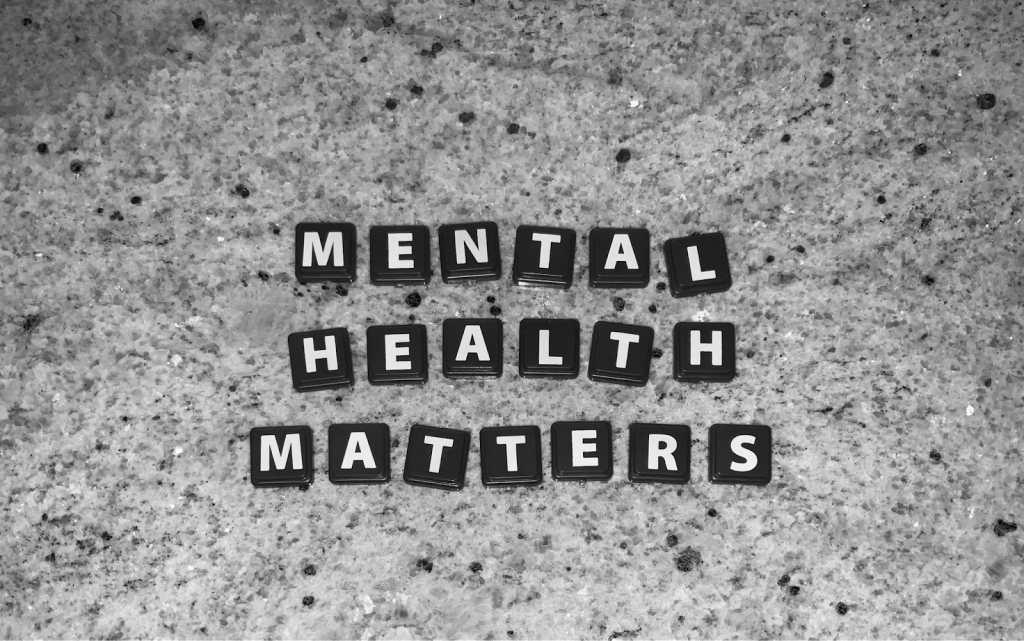OCD, also referred to as obsessive-compulsive disorder, is a mental illness that affects millions of individuals worldwide. Obsessions are persistent and disturbing ideas, images, or desires brought on by this chronic, frequently incapacitating disease.
OCD can show up in many ways, and everyone will find it different. Some OCD sufferers may overclean or wash their hands excessively out of fear of contamination. In contrast, others may strongly desire symmetry or order and spend hours organizing objects. Others may fear losing control or hurting themselves or others, while others may have intrusive thoughts of injury or violence.

Soruce – https://unsplash.com/photos/DJcVOQUZxF0
If untreated, OCD can substantially negatively influence a person’s quality of life. It may result from significant distress and functional impairment in social, professional, and other aspects of functioning. But with the correct care, people with OCD can learn to control their symptoms and live happy, useful lives.
OCD Signs
OCD signs can differ from person to person. However, some common symptoms are frequently experienced by those with the illness. These consist of the following:
Obsessions
Obsessions are persistent thoughts, urges, or pictures that bring on unpleasant feelings like fear, revulsion, or worry. They frequently have themes, such like:
- Fear of germs and bacteria
- Unable to bear uncertain situations
- Requiring things to be symmetrical
- Hostile or violent thoughts
- Unwanted sexual thoughts
Many people with OCD recognize that their obsessions are excessive or unreasonable, but the distress caused by these thoughts cannot be resolved through logic or reasoning.
Compulsions
In response to obsessions, individuals may carry out repetitive behaviors or engage in thought patterns known as compulsions. Completing such acts offers short-term relief from related distress and increases the likelihood of recurrence in future situations. Typically following distinct subject matters, examples of compulsive behavior comprise:
- Cleaning
- Rechecking
- Taking counts
- Being orderly
- Following a strict routine
- Demanding reassurance
Avoidance
OCD sufferers may avoid situations or objects that set off their compulsions or obsessions. For instance, a person who fears contamination might avoid public spaces or touching doorknobs.
Distress and interference
OCD can significantly impair social, occupational, and other facets of functioning in addition to causing severe distress. OCD patients may engage in repetitive behaviors or avoid particular situations for hours daily, which might interfere with their regular activities.
Resistance
People with OCD frequently struggle to rein in their obsessions or compulsions despite their best efforts. They can attempt to conceal their actions from others because they feel guilty or embarrassed about them.
These are the main OCD signs.
Types of OCD
OCD can manifest in different ways, with symptoms varying in severity and focus. Some common types of OCD include:
Contamination OCD
This type revolves around an excessive fear of getting contaminated by germs or other substances. Individuals with OCD contamination may use excessive cleaning or hand washing to alleviate their concerns.
Harm OCD
People with harm OCD experience intrusive thoughts about harming themselves or others, despite not having any true desire. Compulsions may include excessive checking or seeking reassurance to ensure that no harm has been done.
Relationship OCD
This form of OCD centers on doubts and fears about the quality or validity of one’s romantic relationships. People with relationship OCD may constantly seek reassurance from their partners or engage in repetitive behaviors to alleviate their anxieties.
Hoarding OCD
When someone with hoarding OCD gathers an excessive amount of items, their living space becomes cluttered beyond usability. Sadly this behavior can dramatically affect their day-to-day life and well-being.
Symmetry and ordering OCD
People who suffer from symmetry and ordering OCD strongly need symmetry or order. They could take a long time to arrange things a certain way or feel compelled to repeat certain actions until they are “just right.”
It is essential to remember that diagnosing individuals with OCD is sometimes complex since their symptoms may overlap across multiple categories. Additionally, it’s important to recognize that these symptoms fluctuate over time rather than remain constant. Nonetheless, despite these variations in presentation or severity among different cases, specialized mental healthcare providers possess the expertise necessary for effectively diagnosing and treating any form or stage of this condition.
Diagnosis of OCD
An in-depth assessment by a mental health expert, such as a psychiatrist, psychologist, or certified therapist, is necessary to diagnose OCD. The following steps are frequently included in the diagnostic process:
Assessment of symptoms: The mental health professional will inquire about the person’s symptoms, including obsessions and compulsions, and how they affect their day-to-day activities.
Medical history and physical exam: To rule out any underlying medical illnesses that might be the source of the symptoms, the mental health professional will inquire about the patient’s medical history and do a physical exam.
Psychological assessment: The mental health professional will conduct a psychological assessment to gauge the subject’s attitudes, sentiments, and actions.
Diagnostic criteria: The Diagnostic and Statistical Manual of Mental Disorders (DSM-5) criteria will be applied by the mental health professional to make the OCD diagnosis.
Hence OCD can be identified and addressed at any stage of life, which is noteworthy. Receiving prompt diagnosis and treatment can moderate the severity of the condition. If you are displaying indications of OCD, it is critical to enlist the aid of a mental health expert.

Source – https://unsplash.com/photos/fzqxoFJytiE
Finding an OCD Treatment Center
If you or a loved one is struggling with OCD, seek help from an OCD treatment center like CWC Recovery. Those grappling with OCD can opt for specialized facilities that provide bespoke care and assistance to help them regain control over their thoughts and behaviors. With an array of comprehensive treatment techniques, these institutions focus on improving overall wellness by catering specifically to each individual’s requirements.
Conclusion
To sum up, OCD is a crippling mental condition that can significantly lower a person’s quality of life. It is characterized by intrusive and obsessive thoughts that cause compulsive acts intended to lessen anxiety or prevent undesirable outcomes. Even though OCD can present itself in various ways, it is crucial to understand that it is a treatable disorder, and with the correct support, people can learn to control their symptoms and enjoy happy lives.
Conducting an in-depth assessment is crucial when it comes to diagnosing OCD accurately. To accomplish this task, mental health professionals must evaluate various aspects such as the patient’s symptoms history, medical profile, physical characteristics, and psychological state. Treatment typically involves medication, therapy options, or combined techniques based on individual circumstances. Identifying the illness early is vital as it has proven beneficial in substantially reducing its adverse effects.
To conclude, if you or a loved one exhibits signs of OCD, you must get professional help. Finding an OCD treatment facility can offer a haven with qualified specialists who can help people on the road to recovery. Individuals with OCD can recover control of their lives and realize their full potential by first seeking help. With the correct care, OCD need not be a constant battle, and sufferers can advance to a happier and more meaningful future.
FAQs:
Q: What is OCD?
A: Obsessive-compulsive disorder, or OCD, is a mental condition characterized by obsessions—persistent, unsettling thoughts, pictures, or desires—that lead to compulsions—repetitive behaviors or thoughts—that are performed to reduce anxiety or prevent a dreaded outcome.
Q: What are some OCD signs?
A: Obsessions, compulsions, avoidance, anxiety and interference, and resistance are all typical OCD signs.
Q: What are the types of OCD?
A: There are wide varieties of OCD, including symmetry and order OCD, connection OCD, religious or scrupulosity OCD, contamination OCD, and damage OCD.
The Editorial Team at Healthcare Business Today is made up of skilled healthcare writers and experts, led by our managing editor, Daniel Casciato, who has over 25 years of experience in healthcare writing. Since 1998, we have produced compelling and informative content for numerous publications, establishing ourselves as a trusted resource for health and wellness information. We offer readers access to fresh health, medicine, science, and technology developments and the latest in patient news, emphasizing how these developments affect our lives.







